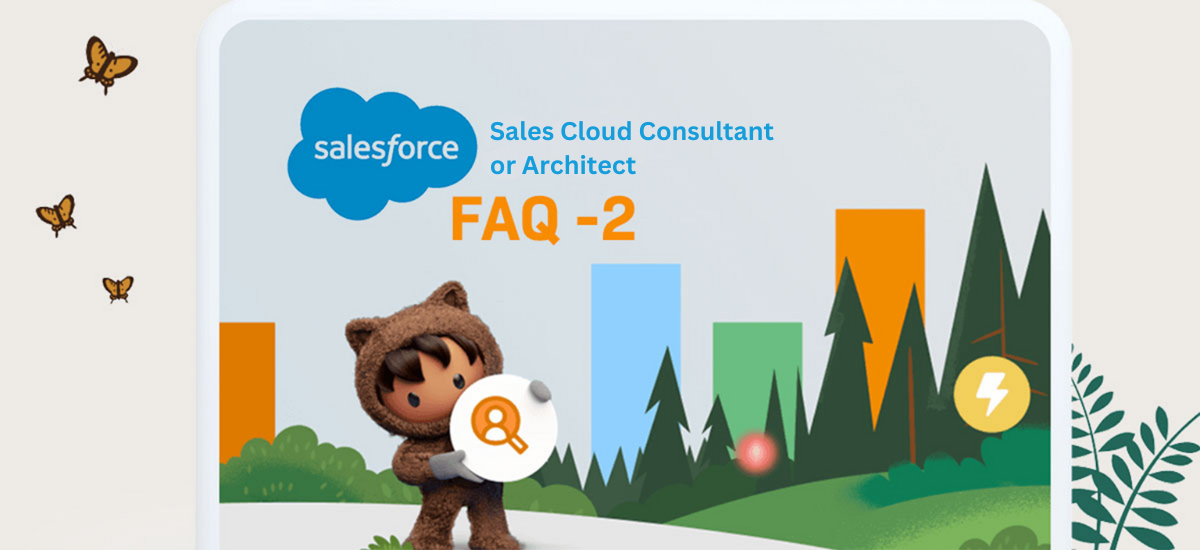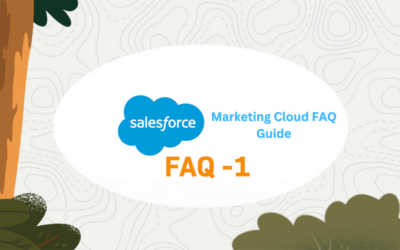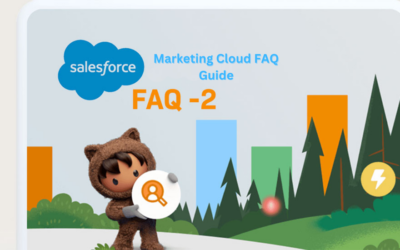Furthermore, it’s worth noting that the role of a Salesforce Sales Cloud Consultant or Architect extends far beyond technical prowess. While technical knowledge is undoubtedly crucial, a successful candidate must also exhibit exceptional problem-solving skills, effective communication abilities, and a knack for translating complex technical concepts into actionable strategies for the broader team. In today’s collaborative work environments, the ability to work cohesively with cross-functional teams and articulate the benefits of Sales Cloud solutions to non-technical stakeholders is paramount. As you delve into the interview questions presented in this guide, remember that finding the perfect fit isn’t just about finding a candidate who checks technical boxes; it’s about discovering a professional who can align Sales Cloud with your organization’s unique objectives, fostering growth, efficiency, and customer satisfaction.
In the subsequent sections, we will navigate through a plethora of interview questions that span the technical, strategic, and interpersonal aspects of the Salesforce Sales Cloud Consultant or Architect role. These questions aim to uncover not only a candidate’s depth of knowledge but also their adaptability, creativity, and capacity to drive positive change within your organization. As you embark on the journey to find your Salesforce Sales Cloud Consultant or Architect, let this guide serve as your compass, guiding you toward a candidate who possesses the perfect blend of technical prowess and strategic insight to propel your business into a future defined by sales excellence and customer-centricity. If you need assistance with Salesforce CRM setup and optimization, companies like CRM Force can provide valuable expertise and support.
1- What is Salesforce Sales Cloud, and how does it differ from other Salesforce products?
Answer: Salesforce Sales Cloud is a comprehensive Customer Relationship Management (CRM) platform designed to streamline and enhance sales processes, manage customer data, and provide actionable insights to sales teams. It offers various tools and features specifically tailored to sales professionals, such as lead management, opportunity tracking, contact management, and reporting.
Salesforce Sales Cloud differs from other Salesforce products, such as Service Cloud and Marketing Cloud, in its primary focus on sales-related activities. While Service Cloud emphasizes customer support and case management, and Marketing Cloud focuses on marketing automation and campaign management, Sales Cloud is centered around the sales lifecycle, from lead generation to closing deals.
2- What are the primary objects in Salesforce Sales Cloud?
Answer: In Salesforce Sales Cloud, the primary objects are:
-
- Leads: These represent potential customers who have shown interest in your products or services but have not yet become paying customers.
- Accounts: Accounts typically represent companies or organizations that you do business with. They are often associated with Contacts and Opportunities.
- Contacts: Contacts are individuals associated with Accounts. They are usually key points of contact within an organization.
- Opportunities: Opportunities track potential sales deals or transactions, including details like deal amount, close date, and stage.
- Campaigns: Campaigns are used to plan, execute, and track marketing efforts and their effectiveness.
3- What is the difference between a Role and a Profile in Salesforce?
Answer: Roles: Roles are used to control record-level access in Salesforce. They determine which records a user can view and edit based on their position within the hierarchy. Roles are essential for setting up sharing rules and record-level security.
Profiles: Profiles, on the other hand, determine the object and field-level permissions for a user. They specify what actions a user can perform, such as creating, editing, or deleting records, on various objects and fields within Salesforce.
4- What is the significance of Record Types in Salesforce?
Answer: Record Types allow you to customize the data entry experience for different types of records within the same object. You can assign different page layouts, picklist values, and even business processes to specific Record Types. This customization is particularly valuable when dealing with diverse data or when different teams within your organization have unique requirements for the same object.
5- What is the difference between Validation Rules and Workflow Rules?
Answer: Validation Rules: Validation Rules are used to enforce data quality and accuracy. They prevent users from entering invalid data by checking data against specified criteria. If the data doesn’t meet the criteria, users receive an error message, and the record isn’t saved.
Workflow Rules: Workflow Rules automate standard internal procedures and processes to save time and ensure consistency. They trigger actions based on specified criteria, such as sending email alerts, creating tasks, updating fields, or initiating outbound messages.
6- How can a Salesforce Sales Cloud Consultant help streamline sales processes?
Answer: A Salesforce Sales Cloud Consultant can streamline sales processes by configuring the platform to match the organization’s specific sales workflows, automating routine tasks, and providing real-time insights for informed decision-making.
7- What is a Sales Path in Salesforce Sales Cloud, and why is it important?
Answer: A Sales Path is a visual guide in Salesforce that helps sales reps follow a predefined sales process. It’s important because it ensures consistency in sales activities and helps reps focus on the right steps in the sales cycle.
8- How do you create custom objects in Salesforce Sales Cloud, and why might this be necessary?
Answer: Custom objects are created to store specific information unique to an organization. A Salesforce professional can create custom objects using Salesforce’s point-and-click tools or by writing custom code using Apex.
9- What is a validation rule, and how can it be used in Salesforce Sales Cloud?
Answer: A validation rule ensures that data entered into Salesforce conforms to specific criteria. It can be used to enforce data quality and prevent inaccurate or incomplete information from being entered.
10-Explain the difference between a workflow rule and a process builder in Salesforce.
Answer: A workflow rule is used to automate standard internal procedures and processes to save time across the organization, while Process Builder allows you to automate more complex processes with multiple criteria and actions.
11- How do you set up and customize reports and dashboards in Salesforce Sales Cloud?
Answer: Reports and dashboards are essential for monitoring and analyzing sales performance. A Salesforce professional should be able to create, customize, and share reports and dashboards to provide actionable insights.
12- What is the significance of lead scoring in Salesforce, and how would you set it up for a company?
Answer: Lead scoring assigns a numerical value to leads based on their likelihood to convert into customers. It can be set up using Salesforce’s built-in lead scoring tools, and it helps sales teams prioritize leads effectively.
13- How can you ensure data security in Salesforce Sales Cloud?
Answer: Data security is paramount. Salesforce provides various tools such as profiles, roles, and permissions to control who can access and modify data.
14- What are the best practices for managing and cleansing data in Salesforce Sales Cloud?
Answer: Data management and cleansing involve regular audits, deduplication, and data validation rules to ensure data accuracy and integrity.
15- How do you integrate Salesforce Sales Cloud with other applications, and why is integration important?
Answer: Integration with other applications can be achieved through APIs or third-party integration tools. It’s important as it allows data to flow seamlessly between Salesforce and other systems, enhancing productivity and accuracy.
16- What are custom settings and how are they different from custom objects in Salesforce Sales Cloud? Provide an example of when you would use custom settings.
Answer: Custom settings are used to store data that is organization-wide or specific to profiles. Differentiating them from custom objects and providing a real-world use case demonstrates a deeper understanding.
17- What is a REST API, and how can it be used to integrate Salesforce Sales Cloud with external systems?
Answer: Candidates should discuss the principles of REST APIs and explain how they can facilitate real-time data integration between Salesforce and external applications.
18- What are Lightning Components in Salesforce, and how can they be used to create custom functionality within Salesforce Sales Cloud?
Answer: Candidates should discuss the benefits of Lightning Components, how they differ from Visualforce pages, and provide an example of their use in customization.
19- How can you use the Salesforce Analytics platform (Einstein Analytics) to gain insights from sales data in Salesforce Sales Cloud?
Answer: Candidates should discuss the capabilities of Einstein Analytics, its integration with Sales Cloud, and its role in advanced reporting and analytics.
20- What are Salesforce Data Extensions, and how do they contribute to enhanced data analysis and segmentation within Sales Cloud?
Answer: Candidates should explain Data Extensions and their use in improving data analysis and segmentation for targeted marketing and sales efforts.
Conclusion
In conclusion, the role of a Salesforce Sales Cloud Consultant or Architect is pivotal in today’s business landscape, where efficient customer relationship management and sales optimization are paramount. Salesforce Sales Cloud, with its diverse functionalities and capabilities, demands professionals who possess a unique blend of technical expertise, strategic thinking, and effective communication skills. Throughout this guide, we have provided a comprehensive set of interview questions that encompass not only the core technical aspects but also the soft skills required for success in this role.
As you embark on your journey to select the ideal Salesforce Sales Cloud Consultant or Architect, remember that finding the right candidate goes beyond assessing their knowledge; it entails evaluating their ability to adapt, innovate, and collaborate effectively within your organization. The right professional can drive positive transformation, streamline sales processes, and elevate customer experiences, ultimately contributing to the growth and success of your business. We trust that this guide equips you with the necessary tools to make an informed decision in selecting the candidate who will steer your organization toward sales excellence and customer-centric achievement. To learn more about how CRM Force can assist you in recruiting top CRM talent and optimizing your CRM strategies for successful drip campaigns, contact us today. Together, let’s maximize your customer engagementContact Us today.





